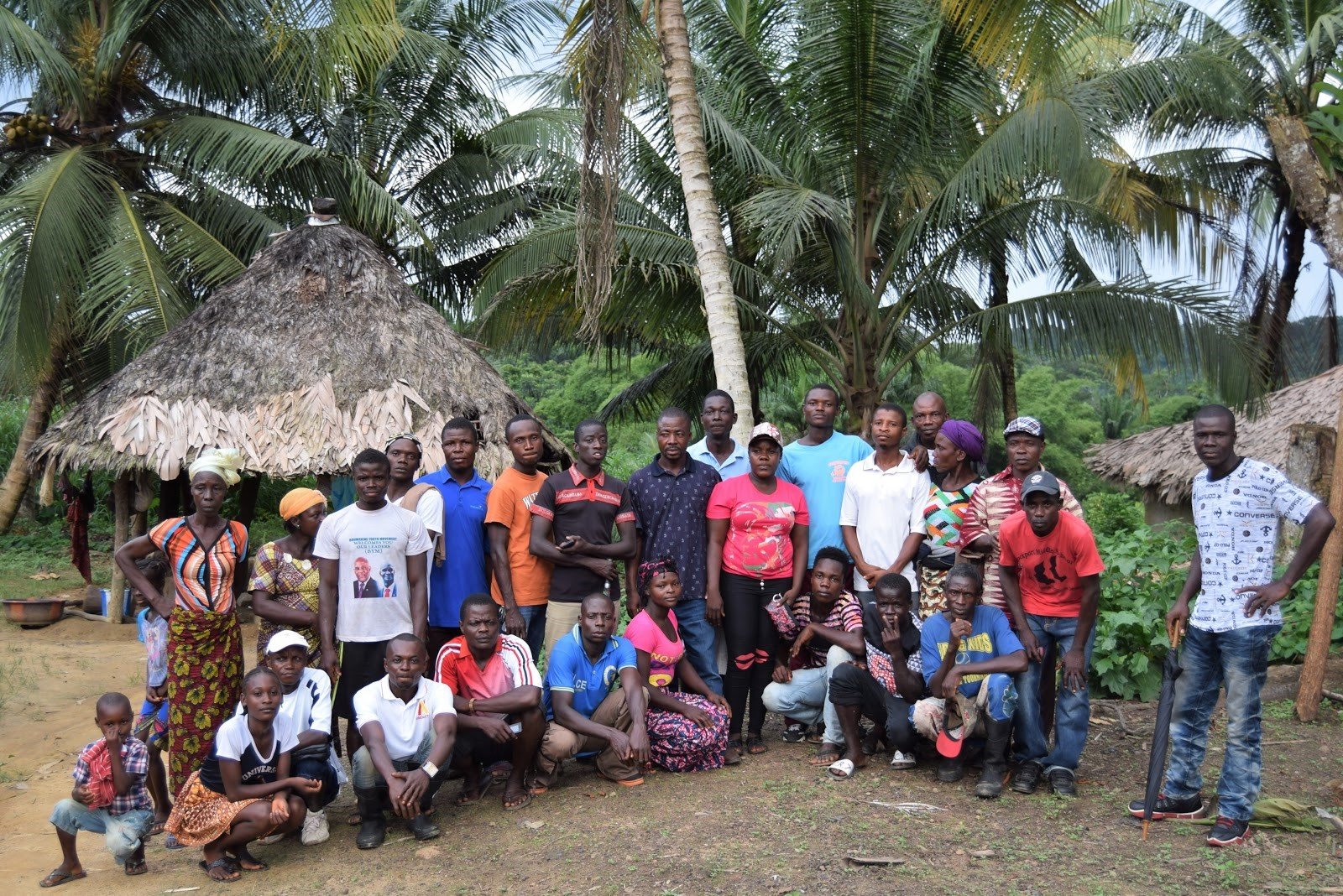What is palm oil? And why is it such a problem that so many products contain it?
Palm oil is derived from the palm fruit grown on the West African oil palm tree. It is found in food, cosmetics, cleaning products, candles, even in the fuel tanks of our diesel cars. It is the most commonly used vegetable oil worldwide – and for good reason: it can be used in a wide array of products, it has the highest yield of any oil crop, there is a lack of economically competitive substitutes, and it is the cheapest oil to produce and refine. There’s just one problem: the alarming spread of oil palm plantations is destroying the planet’s lungs, and decimating the communities that depend on them for survival.
Liberia, in West Africa, has been ravaged by 14 years of recent civil war, rampant corruption, and Ebola. What’s more, it has now fallen prey to the relentless pursuit of land by multinational agribusinesses. The rich, biodiverse, carbon storing forests that are being depleted in favour of oil palm plantations in Liberia are home to hundreds of communities that depend on these forests for their livelihood.
James Otto, director of the Corporate Governance and Community Land Rights program at the Sustainability and Development Institute (SDI), spoke to Stand.ie about the work they do. As part of the program, the SDI team travel for hours on crater-covered roads in their robust Jeep, training forest communities on their legal rights and informing them that any company encroaching on their land must abide by the international standard of free, prior and informed consent (FPIC).
This empowers them to resist corporate land grabs and even equips them with phones outfitted with the TIMBY (This Is My Back Yard) app, which allows on-the-ground reporting anywhere in the world. SDI acts as an amplifier of the voices of these communities, uniting locals and instilling a sense of social cohesion, and constantly supporting them to take the fight to those with the power to influence and change the law.
A large part of the problem is that the land these communities are living on is categorised as ‘customary land’, which means that it is ultimately the Liberian government that owns it. SDI have been campaigning for the passage of the Land Rights Act which would give communities secure access to land and secure land tenure. This bill is currently before the National Legislature, however campaigners complain that it is being ignored. A looming election means the prospects of the Act being passed in this government are less than optimistic.
This situation is having dire effects on the ground. In Grand Bassa county, the livelihoods of the Jogbahn Clan are being devastated due to the actions of a British company, Equatorial Palm Oil (EPO). The clan have been resisting the encroachment of EPO on their land since 2007, since the beginning of EPO’s application to plant oil palm on their land. Nevertheless, in total disregard to the objections of the affected communities, in 2012 the company cleared and planted some of the community’s land, destroying crops and farmland. They then forcibly conducted a land survey, again without the consent of the communities. The communities attempted to halt the unlawful survey, which resulted in an altercation between the communities and EPO, with EPO receiving support from the police support unit (PSU). Incidences of fierce intimidation and beatings by EPO and the PSU were reported as locals marched to the county capital to protest, with some community members requiring hospital treatment.
Jogbahn Clan
During their ordeal, police and EPO officers berated them for being “against development”. If human rights abuses,land grabbing, and ignoring the international legal standard of free, prior and informed consent (FPIC) is ‘development’, then maybe we need to re-think what constitutes development. Palm oil plantations are systematically destroying the forests that local people in Liberia depend on.
The Jogbahn Clan are still resisting EPO, and recent events involving forced signatures and coercion do not paint a pretty picture. Despite the proposed implementation of progressive EU policies to stop use of palm oil by 2020, a doubling in demand for palm oil is nevertheless still predicted for the middle of the century. A host of palm oil companies are resisting the moves by the EU, with many countries threatening a trade dispute if a ban on palm oil is put in place.
The situation is bleak, but not hopeless. If the Land Rights Act is passed, it will give communities more control over how their land is used. In Europe, we can show solidarity with the indigenous Liberians by:
- Calling on our MEPs to enforce the ban on palm oil for biodiesel.
- Lobbying companies like EPO to halt their attempts to plant on indigenous land
- Lobbying for sustainable palm oil or boycott it altogether
- Getting involved at home
- Spreading the word!
Meaghan has a BA (Intl) in Psychology from NUIG. Taking part in the first ever Ideas Collective re-ignited her passion for environmental and social justice which led her to leave her job in Diageo for Friends of the Earth. Between January 2016 and May 2017 she progressed from Young FoE intern, to Activism Officer, to Activism, Education & Outreach Manager and finally to her current position, Head of Mobilisation. She is coordinator of Young Friends of the Earth, who meet weekly and are always open to new members.
